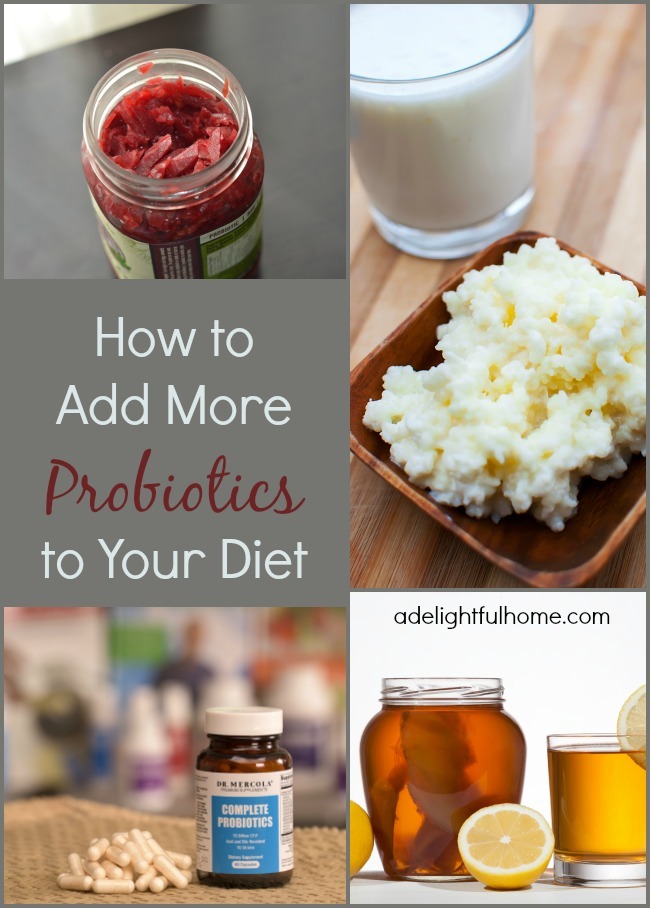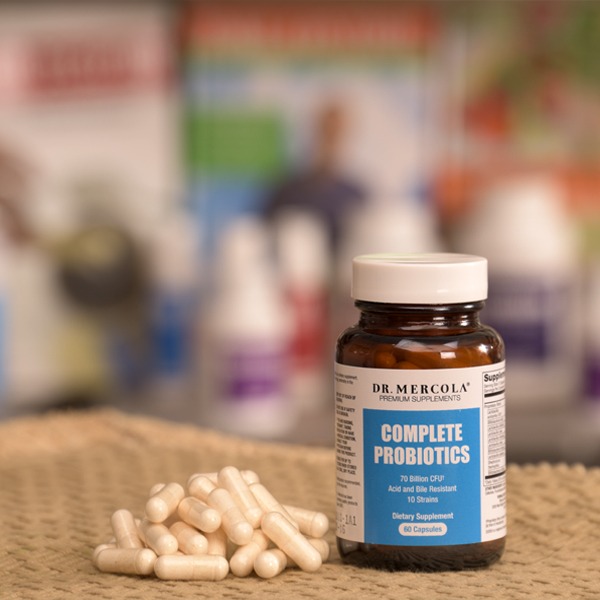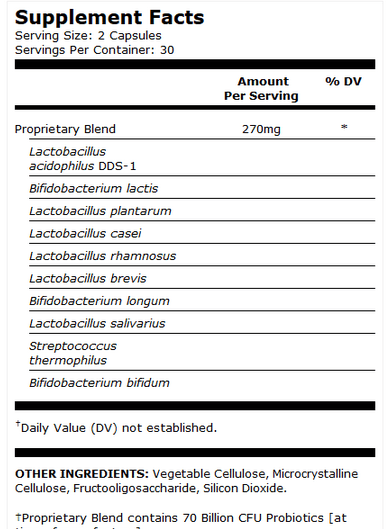Probiotics have grown in popularity over the past few years. And for good reason. I don't think it's just a passing trend, but the fact that probiotics are beneficial to our health, which is keeping them in-vogue.
I won't go into all the benefits today (because I bet you already know most of them), but you can read more about the benefits of probiotics here.
Let's look at three foods and beverages that help us consume more probiotics:
1. Dairy Kefir
Diary kefir is rich in probiotics and readily available at most health food stores (and even many grocery stores).
Dairy kefir is also easy to make. See instructions here.
Flavor dairy kefir to drink alone or add to a smoothie. It can also be used to create creamy salad dressings, dips, and even a spreadable cream cheese (just strain kefir until only the curds are left, add some herbs if desired, an you have a sandwich spread).
2. Kombucha
Kombucha is my favorite probiotic beverage. Kombucha is made by fermenting sweet tea with a culture of yeast and bacteria. It's bubbly and refreshing, and a real treat to drink!
Kombucha is available at most health food stores (and even some main stream stores – I've seen it at Target!). But it can be an expensive habit. Making your own is quite simple and will save a lot of money. If you know someone who makes Kombucha, ask them for a SCOBY. Chances are they will have an extra one to share with you. But, if not, SCOBYs and complete starter kits are available at Kombucha Kamp.
3. Fermented Vegetables
The most common fermented vegetable people eat is sauerkraut. But, there's a lot more available! Currently in my fridge you'll find: fermented carrots, beet and apple kraut, fermented beets, and a fermented carrot, cabbage, onion mix.
Kimchi, a traditional Korean side dish, can be found at most grocery stores. If you have a farmer's market, you may even discover some local ferments that are surprisingly delicious.
What about supplements?
In addition to consuming probiotic-rich foods and beverages, a good-quality probiotic supplement can be helpful. Especially when we are busy and may not take the time to eat fermented foods. Or perhaps you really dislike fermented foods!! That's been known to happen 🙂
Giveaway!
I had a chance to try Dr. Mercola's complete probiotics and was please with my experience. They don't have a strange taste or odor and go down easily. It's a good quality product, containing over 70 Billion CFUs
It contains a variety of strains, which I also love.
If you'd like to win a bottle of Dr. Mercola's Complete Probiotics, enter the giveaway below.
Giveaway open to US residents only. End on Thursday, July 9 at 11:59 PM.
Disclaimer/disclosure: I received products from Dr. Mercola for review/giveaway purposes and did not receive any financial compensation. The opinions expressed in the post are based on my own experience.






We as a family really like kombucha. Make lots of it. Want to try more fermented veggies.
My daughter got me hooked on kombucha, searching for a scoby now, thank you so much for such a wonderful give-a-way!
My preference is the fermented veggies!
I use all of the sources you mentioned. Love making honey/cinnamon fruit dip from the milk kefir.
I love kimchi or sauerkraut
This comes at a time when I HAVE to take antibiotics, so I am working very hard now to up my probiotics to combat that. Thanks for the post!
I like kombucha the best.
Yippee, I won! Thank you for the free giveaway Stacy!
My boyfriend and I really like KOMBUCHA, we usually get Kombucha drinks at a healthy food place near by our house, however, we realized that it could be really pricey, sometimes. a bottle costs 3-6 dollars. So we started seeking kombucha supplements. We ended up getting a bottle from wecarenaturals, It is much cheaper comparing to the bottle Kombucha drinks if you decided to consume it for a long-run.